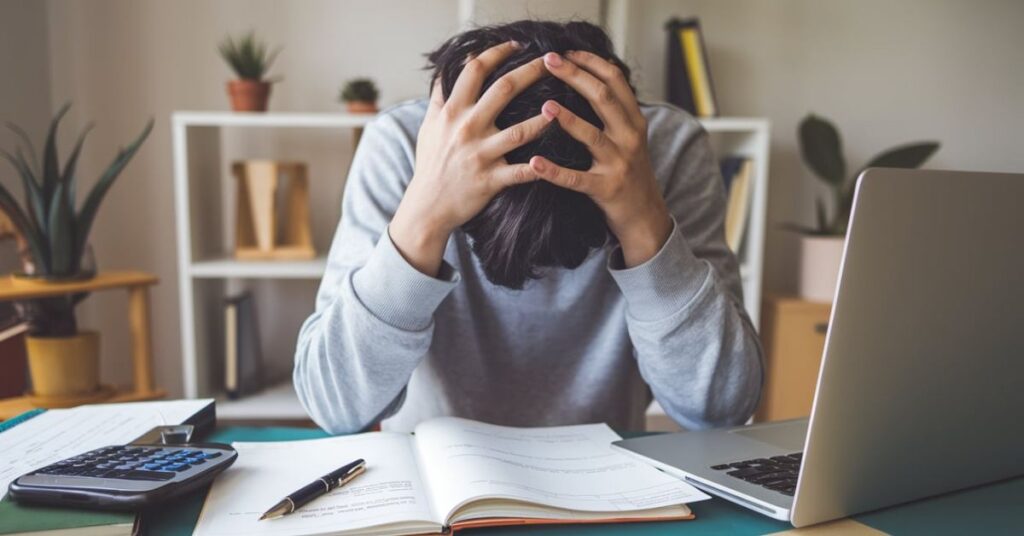Defaulting on a student loan can have serious financial and legal consequences. While understanding these repercussions is essential, some common misconceptions persist about what actually happens when you default.
This article explores the truths and myths surrounding student loan defaults, providing clarity to help borrowers make informed decisions.
What Does It Mean to Default on a Student Loan?

When a borrower fails to make payments on their student loan as agreed, the loan becomes delinquent. If this delinquency continues for a specified period—typically 270 days for federal loans—the loan enters a state of default. For private loans, the default timeline may vary depending on the lender.
Consequences of Defaulting on a Student Loan
Defaulting on a student loan can result in:
- Damage to Credit Score: Missed payments are reported to credit bureaus, significantly lowering your credit score.
- Collection Costs: Additional fees may be added to the loan balance to cover collection efforts.
- Loss of Eligibility for Financial Aid: You lose access to further federal student aid until the default is resolved.
- Wage Garnishment: A portion of your paycheck may be withheld to repay the loan.
- Tax Refund Offsets: Federal tax refunds may be seized to repay defaulted federal loans.
Addressing the Question: Which of the Following Is Not True?
To distinguish between truths and myths about loan defaults, let’s analyze common statements. Here’s a table that outlines whether these statements are true or false:
| Statement | True or False | Explanation |
| Your credit score will not be affected if you default on a student loan. | False | Loan defaults significantly impact credit scores, making it harder to secure future credit. |
| Federal loans cannot garnish your wages in the event of a default. | False | The government can garnish wages without a court order for defaulted federal student loans. |
| You can no longer receive financial aid after defaulting on a loan. | True | Defaulting makes you ineligible for federal student aid until the loan is rehabilitated. |
| Defaulting on a student loan automatically results in criminal charges. | False | Loan defaults are civil matters, not criminal. |
| Bankruptcy can easily discharge student loans, including those in default. | False | Discharging student loans through bankruptcy is rare and requires proving undue hardship. |
Misconceptions About Student Loan Defaults

1. Your Credit Score Will Not Be Affected
This is false. A defaulted student loan is reported to credit bureaus, typically causing a dramatic drop in credit score. A lower credit score can make it difficult to qualify for loans, credit cards, or even housing.
2. Federal Loans Cannot Garnish Wages Without a Court Order
Another false claim. Federal loans have unique collection powers, including the ability to garnish wages without obtaining a court judgment. However, private lenders must go through legal proceedings to garnish wages.
3. Defaulting Automatically Results in Criminal Charges
This myth is unfounded. Student loan defaults are treated as civil issues. While legal action may be taken to recover funds, it does not result in criminal charges.
Key Facts About Resolving a Default
How to Get Out of Default
Borrowers can resolve a default through the following options:
- Loan Rehabilitation: Make a series of agreed-upon payments to bring the loan out of default.
- Loan Consolidation: Combine multiple loans into one and agree to a repayment plan.
- Paying Off the Loan in Full: This is less common but resolves the default completely.
Federal vs. Private Loan Default Consequences
| Aspect | Federal Loans | Private Loans |
| Wage Garnishment | Yes, without court order | Yes, with court order |
| Eligibility for Federal Programs | Lost until default is resolved | Not applicable |
| Collection Methods | Tax refund offsets, wage garnishment | Court-ordered actions like garnishment |
| Bankruptcy Discharge | Rare, requires proving undue hardship | Rare, similar criteria apply |
Why It’s Important to Avoid Default
The consequences of default extend beyond financial penalties. Borrowers in default often face the following:
- Difficulty in Securing Future Loans: A poor credit history can prevent access to mortgages, auto loans, or credit cards.
- Increased Loan Balance: Accrued interest and collection fees increase the total amount owed.
- Emotional Stress: Dealing with aggressive collection efforts and financial instability can cause significant mental strain.
How to Prevent Student Loan Default
1. Understand Your Repayment Options
Federal loans offer flexible repayment plans based on income. Options include:
- Income-Driven Repayment Plans: Payments are capped at a percentage of your discretionary income.
- Deferment and Forbearance: Temporarily pause payments during financial hardships.
2. Communicate With Your Lender
If you anticipate difficulty making payments, contact your loan servicer immediately to discuss options.
3. Budget Wisely
Allocate funds for loan payments as a priority in your monthly budget. Cutting unnecessary expenses can help.
Read More: Love2Love.lv: A Comprehensive Guide to Discover Genuine Connections
Conclusion
Defaulting on a student loan comes with severe consequences, including credit damage, wage garnishment, and potential financial hardship. While myths about defaults exist, understanding the facts can empower borrowers to take proactive steps to avoid or resolve defaults.
Whether through rehabilitation, consolidation, or careful planning, it’s possible to regain financial stability after defaulting. Stay informed, communicate with lenders, and explore all available options to stay on top of your student loan obligations.
FAQs About Student Loan Default
Can a Defaulted Loan Be Removed From My Credit Report?
Yes, if you successfully rehabilitate the loan, the default status may be removed. However, delinquent payments before the default will remain on your report.
Can Defaulting on Private Loans Affect My Credit Score?
Absolutely. Private loan defaults are reported to credit bureaus, just like federal loan defaults.
How Long Does a Defaulted Loan Stay on My Credit Report?
A defaulted loan typically remains on your credit report for seven years from the date of default.
Can I Still Receive a Tax Refund With a Defaulted Loan?
No, for federal loans, tax refunds may be intercepted to offset the defaulted balance.

Admin (Quorasinfo) is an authority in the realm of celebrity insights, recognized for providing precise and engaging profiles of prominent figures. With a deep understanding of public personas and their influence, Quorasinfo sheds light on the personal and professional journeys of celebrated individuals, creating a bridge between celebrities and their fans. Through meticulously crafted articles, Quorasinfo offers readers a meaningful look into the dynamics of fame and its cultural impact, making it a go-to source for anyone intrigued by the world of celebrities.